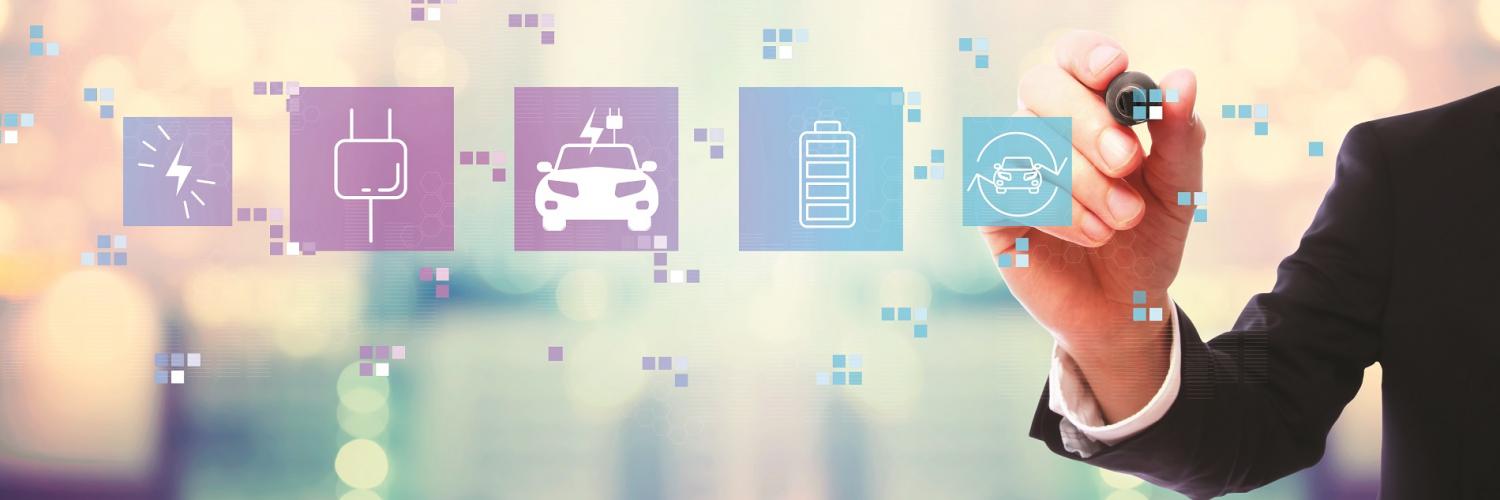European battery gigafactories boom
Paris, 19th of May 2021
The future is electric. In the massive migration from fossil to electric, the availability of capable batteries is a major issue. The need for efficient batteries – for transport, power and industrial applications – is growing at an increasing pace.
The European Commission launched the European Battery Alliance in October 2017 to address this industrial challenge. For Europe, the establishment of a complete domestic battery value chain is imperative for a clean energy transition and a competitive industry. The first ‘Important Project of Common European Interest’ (IPCEI) on batteries was launched in 2019; jointly notified by Belgium, Finland, France, Germany, Italy, Poland and Sweden with a budget of approximately €3.2 billion. The project involved 17 direct participants from the seven member states (including Automotive Cells Company (ACC), a venture between Stellantis and Saft, and also BMW, BASF and Solvay).
On January 26th , the European Commission approved €2.9 billion of public support by twelve Member States for a second IPCEI to support research and innovation in all segments of the battery value chain.
This 2nd project, called “European Battery Innovation (EuBatIn)” was notified jointly by Austria, Belgium, Croatia, Finland, France, Germany, Greece, Italy, Poland, Slovakia, Spain and Sweden. The funding of the twelve participating member states is expected to unlock an additional €9 billion in private investments. It will cover the entire battery value chain from extraction of raw materials, through to the design and manufacturing of battery cells and packs, and finally the recycling and disposal in a circular economy; with a strong focus on sustainability. The project will involve 42 direct participants including BMW, Tesla, and FCA.
“Today, Europe is a global battery hotspot. And by 2025, our actions under the European Battery Alliance will result in an industry robust to power at least six million electric cars each year. Our success lies in collaboration, with some 300 partnerships between industrial and scientific actors foreseen under this project alone, said Vice President Maros Sefcovic, in charge of the European Battery Alliance.
This segment is currently dominated by East-Asian competitors, with Panasonic (Japan) and LG Chem (South Korea) being the top manufacturers for the automotive market, closely followed by Samsung SDI (South Korea), CATL (China) and SK Innovation (South Korea). Some of them have already opened factories in Germany (CATL), Poland (LG Chem) and Hungary (Samsung SDI, SK Innovation).
But the OEM’s are also trying to control this business. The most ambitious one is Volkswagen who announced on March 15th that it was aiming to establish several “gigafactories” in Europe by the end of the decade. “Together with partners, we want to have a total of six cell factories up and running in Europe by 2030,” Thomas Schmall, CEO of Volkswagen Group Components, said in a statement. This move, he added, would guarantee “security of supply.”
According to VW, it is expected that, once fully up and running, the factories will be able to manufacture battery cells with a combined energy value of 240 gigawatt hours each year.
The first two will be located at a Northvolt facility in Skellefteå, Sweden and VW’s Salzgitter site in Germany. In its own announcement, Northvolt said it had received a $14 billion battery cell order from Volkswagen, who will increase its ownership stake in the Swedish battery maker.
Volkswagen will also focus on the development of a “new unified cell” which is planned to be rolled-out in 2023; and will be used in as much as 80% of the group’s electric vehicles in 2030.
Stellantis aims to start producing batteries in Europe together with Total in the joint venture, ACC, from 2023. The first factory is to be built in France; with a second planned for Germany. Ultimately, it is also the intention to produce batteries for other car manufacturers. ACC will launch the construction of the first battery factory in Douvrin (North of France). Initially, the goal is to produce 8 GWh of lithium-ion batteries annually, by 2030 that production capacity is targeted to be 32 GWh per year. In addition, the joint venture wants to open a second battery factory in Kaiserslautern, Germany, in 2025. The target for that factory is a production volume of at least 24 GWh per year. The two factories together must eventually provide 1 million EVs per year with a battery.
Daimler is investing more than one billion euros in a global battery production network within the worldwide production organization of Mercedes-Benz Cars. In Kamenz the battery production has been operational since 2012. Additionally a second battery factory was built at this site. The production started in 2019.
At the Mercedes-Benz plant in Untertürkheim two battery factories are planned. Currently Daimler and joint venture partner BAIC are together building a local battery production at the in Yizhuang Industrial Park in Peking (China). Near the existing Mercedes-Benz SUV plant in Tuscaloosa (USA) construction has commenced for a battery factory. Together with the local partner, Thonburi Automotive Assembly Plan (TAAP), construction of a battery production factory in Bangkok (Thailand) is underway. At the Mercedes-Benz car site in Sindelfingen a new battery factory is also planned. Including Jawor in Poland, the global battery production network grows to nine factories at seven sites on three continents.
Tesla has decided to locate the Tesla Gigafactory Europe in the Berlin area. However, the automaker is facing many delays and troubles so far.
We have seen the effect of the global chip shortage on the automobile industry due to it’s Asian dependency: auto manufacturers around the world, from Ford and General Motors to Hyundai and Porsche, have been forced to scale back or even halt production of some models due to the chip shortage. The majority of chip production occurs in Asia currently, where major contract manufacturers such as Taiwan Semiconductor Manufacturing Co Ltd (TSMC) and Samsung handle production for hundreds of different chip companies.
Hopefully, these European Giga factories projects will enable European automakers to avoid facing this kind of issues in terms of battery supply and will be able to scale up the energy transition process and the shift to EV without concerns of a battery shortage.



